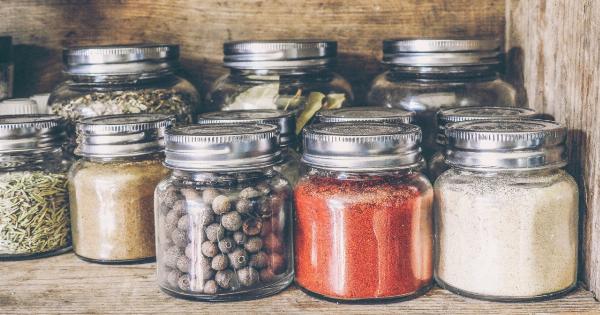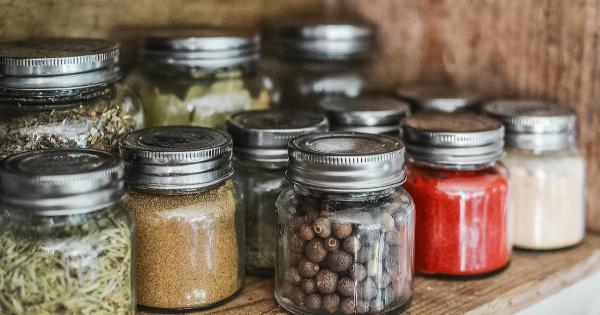The fall season comes with its own unique set of superfoods that can help boost your overall health and well-being. With the abundance of fresh produce available in this season, it’s easy to incorporate these superfoods into your daily diet.
Below are some of the top superfoods of fall that are beneficial for both your body and mind.
Pumpkin
Pumpkin is a fall staple, not just for carving and decorating, but also for its many health benefits. It is a good source of vitamin A, which promotes healthy vision and skin.
It is also rich in antioxidants that protect the body from free radicals, which can cause cellular damage and increase the risk of certain diseases.
Sweet potatoes
Sweet potatoes are another nutritious fall superfood that is loaded with vitamins and minerals. They are a good source of fiber, which can help regulate digestion and promote satiety.
Sweet potatoes are also high in antioxidants, which can help protect against cancer and other chronic diseases. Additionally, they are rich in beta carotene, which supports eye health and may improve brain function.
Cranberries
Cranberries are a tart fruit that is commonly consumed during the fall season. They are an excellent source of vitamin C, which helps support the immune system and promote healthy skin.
Cranberries are also high in antioxidants that can help protect against infections and chronic diseases, such as heart disease and cancer.
Apples
Apples are a popular fruit that comes in a variety of colors and flavors. They are low in calories but high in fiber, which can help promote satiety and regulate digestion.
Apples are also rich in antioxidants that can help protect against chronic diseases, such as heart disease and diabetes. Additionally, apples are a good source of vitamin C, which supports immune health and promotes healthy skin.
Pears
Pears are a juicy, sweet fruit that is abundant during the fall season. They are a good source of fiber, which can help regulate digestion and promote satiety.
Pears are also rich in antioxidants that can help protect against chronic diseases, such as heart disease and cancer. Additionally, pears are a good source of vitamin C, which supports immune health and promotes healthy skin.
Cabbage
Cabbage is a cruciferous vegetable that is commonly consumed during the fall season. It is low in calories but high in fiber, which can help promote satiety and regulate digestion.
Cabbage is also rich in antioxidants that can help protect against chronic diseases, such as cancer and heart disease. Additionally, cabbage is a good source of vitamin C, which supports immune health and promotes healthy skin.
Squash
Squash is a versatile vegetable that comes in many different varieties. It is rich in vitamins and minerals that can help support overall health and well-being. For example, winter squash is high in vitamin A, which promotes healthy vision and skin.
It is also a good source of fiber, which can help regulate digestion and promote satiety. Additionally, squash is rich in antioxidants that can help protect against chronic diseases, such as cancer and heart disease.
Pomegranates
Pomegranates are a bright red fruit that is rich in flavor and nutrients. They are a good source of fiber, which can help regulate digestion and promote satiety.
Pomegranates are also high in antioxidants, which can help protect against chronic diseases, such as cancer and heart disease. Additionally, pomegranates are a good source of vitamin C, which supports immune health and promotes healthy skin.
Cauliflower
Cauliflower is a cruciferous vegetable that is abundant during the fall season. It is low in calories but high in fiber, which can help promote satiety and regulate digestion.
Cauliflower is also rich in antioxidants that can help protect against chronic diseases, such as cancer and heart disease. Additionally, cauliflower is a good source of vitamin C, which supports immune health and promotes healthy skin.
Beets
Beets are a root vegetable that is commonly consumed during the fall season. They are a good source of fiber, which can help regulate digestion and promote satiety.
Beets are also rich in antioxidants that can help protect against chronic diseases, such as cancer and heart disease. Additionally, beets are a good source of folate, which supports fetal development and may improve brain function.
Conclusion
Incorporating fall superfoods into your diet can help promote overall health and well-being. These foods are rich in nutrients and antioxidants that can help protect against chronic diseases and improve brain function.
Some of the top fall superfoods include pumpkin, sweet potatoes, cranberries, apples, pears, cabbage, squash, pomegranates, cauliflower, and beets. Try to incorporate these superfoods into your meals and snacks throughout the fall season to reap their many health benefits.





























